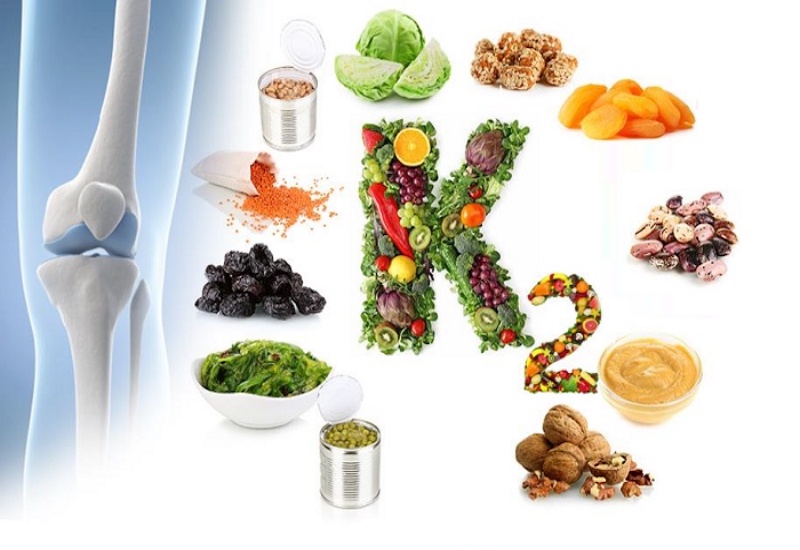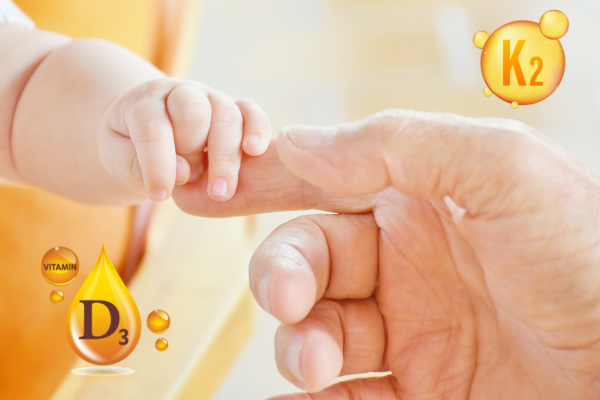Vitamin K1 and Vitamin K2 are both forms of vitamin K, but they have significant differences in biological roles, and absorption efficiency in the body
The Difference Between Vitamin K1 and Vitamin K2
Vitamin K1, also known as phylloquinone, is found in abundance in green vegetables and is the main form of vitamin K in the human diet. This micronutrient accounts for 75 – 90% of the total vitamin K in our bodies.
Vitamin K2, also known as menaquinone, is found mainly in meat, eggs and milk. Additionally, vitamin K2 can be supplemented through natto (fermented soybeans).

Vitamin K includes vitamin K1, vitamin K2
Vitamin K1 is abundant in foods but has less biological activity than vitamin K2, and the half-life of vitamin K1 (24h) is also shorter than that of vitamin K2 (72h).
Vitamin K1 deficiency is rare while vitamin K2 deficiency is quite common.
Effects on bone and cardiovascular health
Both vitamins K1 and K2 play an important role in blood clotting, however, according to research published in the US National Library of Medicine, vitamin K2 is effective in supporting the protection of bones, teeth and improving cardiovascular health.
- Vitamin K1: Participates mainly in the blood clotting process, helping the body produce the necessary clotting factors to prevent excessive bleeding. Therefore, babies are often injected with 1 dose of vitamin K1 immediately after birth to prevent bleeding.
- Vitamin K2: Plays an important role in supporting the transport of calcium to the bones and preventing calcium deposits in the blood vessels. Vitamin K2 helps activate Osteocalcin (a protein that binds calcium to bones) and Matrix Gla Protein (MGP) (prevents calcium deposits in the blood vessels).

Vitamins play an important role in the skeletal and cardiovascular systems.
Should vitamin D3 be combined with vitamin K1 or vitamin K2 to support calcium absorption for bones?
As mentioned above, vitamin K2 is effective in supporting calcium absorption, thereby helping to protect bones, reduce the risk of rickets and osteoporosis thanks to its ability to support reducing calcium deposition in the arteries, reducing the risk of atherosclerosis.
Although vitamin K2 exists in many different forms, from MK-4 to MK-13,… MK-4 and MK-7 are the 2 most common and mentioned forms of vitamin K2. Vitamin K2, especially forms like MK-7, is good for supporting bone development.

Vitamin D3 and vitamin K2 should be combined to help enhance bone protection.
A study has shown that both forms of vitamin K2 (MK4 or MK7) are safe for health, even when used in excess. It can be explained that no matter how much vitamin K2 you consume, if overdosed, it will not affect your health.
However, the recommended safe dose of vitamin K2 in children is 45-50mcg/day. During the “golden period” of height and physical development, the pair that mothers should supplement is vitamin D3K2 to help increase calcium absorption, helping to strengthen bones.





